 Petzlover
Petzlover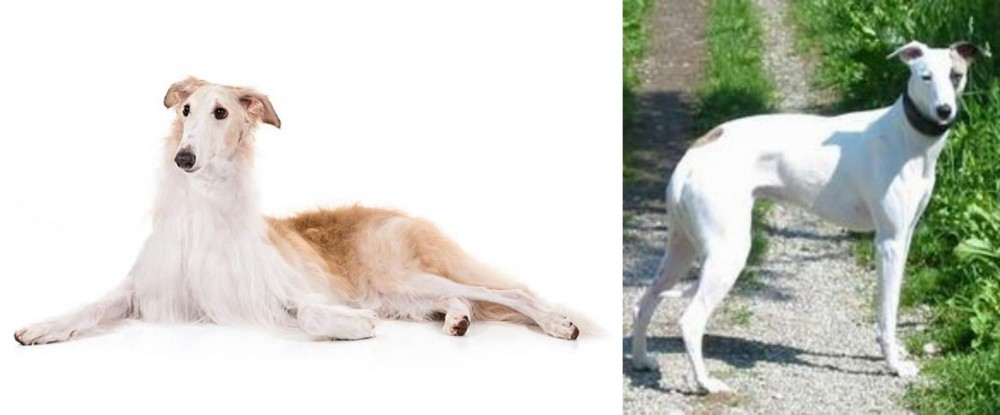 Borzoi is originated from Bosnia and Herzegovina but Kaikadi is originated from India. Borzoi may grow 40 cm / 16 inches higher than Kaikadi. Borzoi may weigh 26 kg / 58 pounds more than Kaikadi. Borzoi may live 4 years less than Kaikadi. Both Borzoi and Kaikadi has almost same litter size. Borzoi requires Moderate Maintenance. But Kaikadi requires Low Maintenance
Borzoi is originated from Bosnia and Herzegovina but Kaikadi is originated from India. Borzoi may grow 40 cm / 16 inches higher than Kaikadi. Borzoi may weigh 26 kg / 58 pounds more than Kaikadi. Borzoi may live 4 years less than Kaikadi. Both Borzoi and Kaikadi has almost same litter size. Borzoi requires Moderate Maintenance. But Kaikadi requires Low Maintenance
 Developed in Russia and also known as the Russian Wolfhound, the Borzoi was used to hunt wolf in the country. By 1873 there were only a few Borzoi which remained, and the Imperial Association was created to protect this graceful, elegant dog. They were often presented to European nobility as gifts, and thanks to a few dedicated breeders, the breed was saved from extinction and exported to other parts of the world. He was imported to the UK in the late 19th century, and it was Princess Alexandra who did a lot to increase the dog’s popularity in Britain.
Developed in Russia and also known as the Russian Wolfhound, the Borzoi was used to hunt wolf in the country. By 1873 there were only a few Borzoi which remained, and the Imperial Association was created to protect this graceful, elegant dog. They were often presented to European nobility as gifts, and thanks to a few dedicated breeders, the breed was saved from extinction and exported to other parts of the world. He was imported to the UK in the late 19th century, and it was Princess Alexandra who did a lot to increase the dog’s popularity in Britain.
The tall, slender, elegant dog was recognized by the AKC in 1891. The Borzoi Club of America, which started off being known as the Russian Wolfhound Club was formed but in 1936 the name was changed to Borzoi. The Russian world ‘Borzoi’ is a term used to encompass all Sight Hounds. Today he is no longer used for hunting but is a gentle companion.
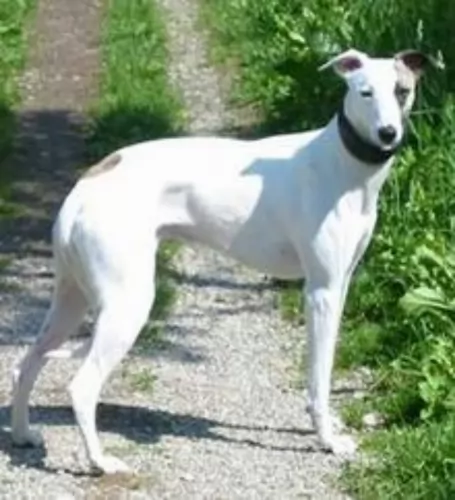 The Kaikadi or Kai Kadi is a terrier dog, hailing from India. Not much is available on the history of the dog, but today you won't easily find original Kai Kadi in India. This is because they have essentially been mixed with stray dogs of India as well as Pariah.
The Kaikadi or Kai Kadi is a terrier dog, hailing from India. Not much is available on the history of the dog, but today you won't easily find original Kai Kadi in India. This is because they have essentially been mixed with stray dogs of India as well as Pariah.
It is for this reason that the dog isn't recognized as a standardized breed by any of the leading kennel clubs.
 The Borzoi’s silky coat is longer with the male dogs than with the females. The height of these tall graceful dogs is 68 to 74cm. You’ll find that the Borzoi’s back is quite bony and it rises in a curve. He has a tall, lean body and a long, narrow head to match with small, thin ears which rest backwards towards the neck.The silky coat comes in a number of colors - tan, white, black or a mix such as sandy and white or tan and white. The coat is often wavy or slightly curly. The soft undercoat becomes thick in the Winter and he sheds this hair in hotter weather. You’ll find the coat frills on the neck and there is feathering on the hindquarters and with the long tail.
The Borzoi’s silky coat is longer with the male dogs than with the females. The height of these tall graceful dogs is 68 to 74cm. You’ll find that the Borzoi’s back is quite bony and it rises in a curve. He has a tall, lean body and a long, narrow head to match with small, thin ears which rest backwards towards the neck.The silky coat comes in a number of colors - tan, white, black or a mix such as sandy and white or tan and white. The coat is often wavy or slightly curly. The soft undercoat becomes thick in the Winter and he sheds this hair in hotter weather. You’ll find the coat frills on the neck and there is feathering on the hindquarters and with the long tail.
The Borzoi is a gentle, sweet dog, to such an extent that they don’t make good watch-dogs. He is good with other pets and children, although he isn’t the kind of dog to indulge in games with children. He doesn’t bark much and he is also not a high-energy dog, being fairly happy to make himself at home indoors. This is a faithful, loyal and courageous dog.
His temperament is quiet, sensitive, intelligent and somewhat aloof. Even though he has these quiet characteristics, he will still need training and socialization as this just rounds your dog off, making him a pleasure to have around.
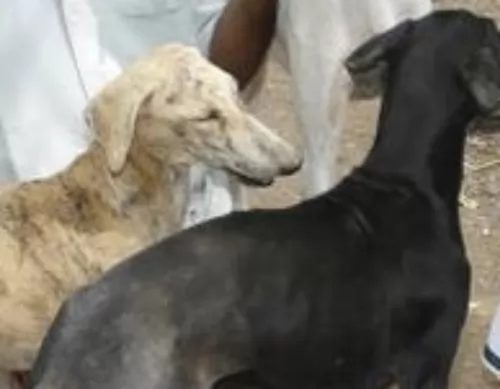 These dog have always been used for hunting, guarding and herding in India and today he makes a good watchdog, watching over his human family.
These dog have always been used for hunting, guarding and herding in India and today he makes a good watchdog, watching over his human family.
It's not a large dog though and he stands at roughly 35 to 45cm in height and weighs 17 to 21kg. He is lean and muscular, looking similar to the Italian Greyhound or Whippet.
He has a short smooth coat and the color can be patterned white, tan and black. The head is long and thin, as are the legs, and his tail is long and thin too. The floppy ears stand erect when alert.
The Kaikadi is an affectionate, alert, energetic dog. He won't do well in a city environment with a tiny garden as he requires a large garden to run in.
He is a dog that will need to be trained and socialized if you want him to be obedient and to get on well with children in the home as well as pets.
He can be a fairly quiet, docile dog inside but outside when there is a game to be had, he becomes lively and animated. They are quite sensitive, so while they get on well with children in the home, he won’t respond well to large families with lots of rowdy, undisciplined children as it makes him anxious.
 If you’re looking for a quiet, amicable, elegant breed, you’ll love the big Russian Borzoi, known for his gentleness, sweetness and gracefulness. He is a friendly dog with his human family, although not too keen on children with their boisterous games. It is his gentleness however, that has endeared him to so many dog lovers.
If you’re looking for a quiet, amicable, elegant breed, you’ll love the big Russian Borzoi, known for his gentleness, sweetness and gracefulness. He is a friendly dog with his human family, although not too keen on children with their boisterous games. It is his gentleness however, that has endeared him to so many dog lovers.
Even though he isn’t one of the most active dogs, he will still need exercise and a walk as he is a big dog used to wide, open spaces. He’ll need the opportunity every now and then to simply run.
He makes a wonderful pet for new- or seasoned pet owners, and if you’re looking for a quiet, devoted companion, why not welcome an elegant, graceful Borzoi into your home?
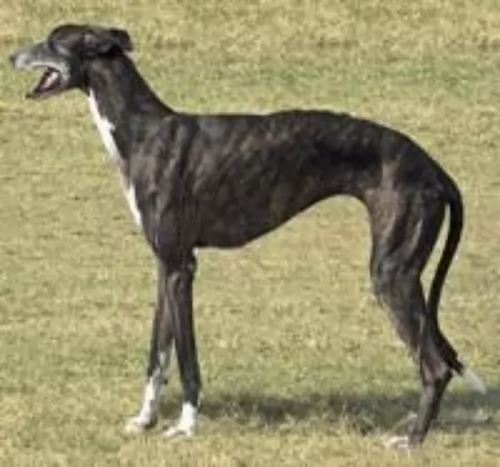 Your Kai Kadi loves running and playing outside, after all he has always been a hunting dog. He will love to spend time with you outside playing.
Your Kai Kadi loves running and playing outside, after all he has always been a hunting dog. He will love to spend time with you outside playing.
The Kaikadi is a low maintenance dog too. Provide your Kaikadi with everything that makes a dog happy and in exchange you’ll get yourself a loyal, loving pet who wants to be your friend.
 The Borzoi is a healthy dog, and you’re not likely to be taking him to the veterinarian often but you do need to know about illnesses which are more prevalent in these large breed dogs.
The Borzoi is a healthy dog, and you’re not likely to be taking him to the veterinarian often but you do need to know about illnesses which are more prevalent in these large breed dogs.
This is a common bone tumor found in dogs and it is more commonly found in large breeds. It can spread quickly to other parts of the body, and although there are treatments, the long term prognosis isn’t good. Your dog will have pain and swelling.
Lymphosarcoma is a common cancer diagnosed in dogs. It is a cancer of lymphocytes and the average dog gets it from 6 years on. Some dogs may not necessarily feel sick, while others are tired, they don’t eat, they lose weight and may have diarrhea.
This is a disease that can be deadly for your dog. Known as gastric dilatation, the stomach twists and fills with gas, putting pressure on the diaphragm, and creating breathing problems. Bloat is more common in large breeds and its up to you as a responsible dog owner to watch out for a swollen stomach with drooling and attempts to vomit.
Remember that some health problems are inherited, but there are other health problems that can be prevented by the way you treat- and raise your dog.
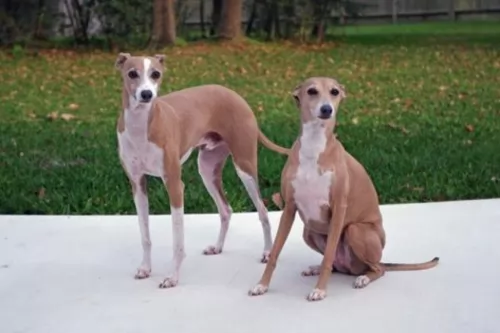 When you’ve got a Kai Kadi, make sure you understand some of the health risks that come along. This is a healthy dog breed so you’re not likely to have much going wrong with him, but you need to know that he can get sick and then you need to have the name of a good vet for medical treatment -
When you’ve got a Kai Kadi, make sure you understand some of the health risks that come along. This is a healthy dog breed so you’re not likely to have much going wrong with him, but you need to know that he can get sick and then you need to have the name of a good vet for medical treatment -
A sudden drop in blood sugar, which is many times brought on by stress, can make your dog lethargic and even have slight tremors in the face. It could be a hypoglycemic attack. See the vet immediately.
The pancreatitis can become inflamed and your dog could be vomiting, have diarrhea and have abdominal pain. There are quite a few things that can cause pancreatitis such as obesity, infection as well as stress.
 Long coated dogs shed, and the Borzoi female sheds after her season and the males shed annually. Once the female is spayed, she sheds like the males. You will need to be brushing your Borzoi every day to rid the dogs of this loose hair.
Long coated dogs shed, and the Borzoi female sheds after her season and the males shed annually. Once the female is spayed, she sheds like the males. You will need to be brushing your Borzoi every day to rid the dogs of this loose hair.
Borzoi teeth collect tartar, more so than with other breeds, so their teeth will need to be brushed at least 3 times a week with special dog toothbrushes and toothpaste to prevent gum and tooth problems.
Good quality food is the foundation for good health with your pet. Home-made food is always good for your dog and should include meat, rice and vegetables. Apart from top quality commercially manufactured food for large breed dogs and recommended by your vet, make sure to include some raw meat into your Borzoi’s diet too. This is imperative to stave off ill health and skin problems. Make sure he has a constant supply of fresh, cool water available to him.
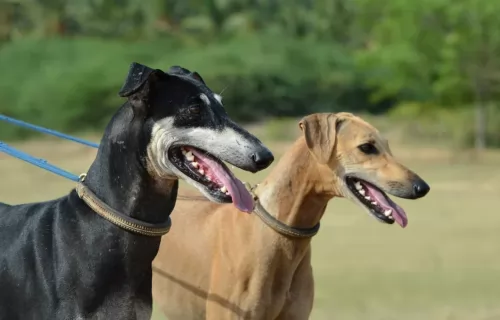 Owning a dog is a responsibility, requiring you to look after a living being just like you would any family member of yours, otherwise why get a dog in the first place?
Owning a dog is a responsibility, requiring you to look after a living being just like you would any family member of yours, otherwise why get a dog in the first place?
You may want a dog for watchdog purposes, but as a living creature, it is important to develop a relationship with your pet and to show him that you love and appreciate him.
There are many things to do to ensure you have a healthy, happy 4-legged canine member in your household
Make sure he has fresh, cool water available to him around the clock.
Provide him with a warm, dry place to sleep.
Provide him with wholesome food to maintain health. There are many excellent commercially manufactured foods on the market. Buy one according to the size and energy levels of your pet. Try to sometimes add cooked home-made food into his kibble such as cooked chicken, brown rice and vegetables as well as some raw meat from time to time. This diet is guaranteed to keep your pet mentally and physically well.
Check your pets nails, ears and eyes regularly. He should be checked for fleas and ticks when you brush him twice a week. Have him examined by a veterinarian as soon as you suspect something is amiss with him. Keep him up to date with his vaccinations.
The Kaikadi is an energetic dog so make sure that you provide him with the opportunity to be exercised. Take him on walks or hikes, play ball and rope games with him and go swimming with him to ensure he remains lean and muscular.
Have him trained and socialized as it takes off the rough-edges of a dog.